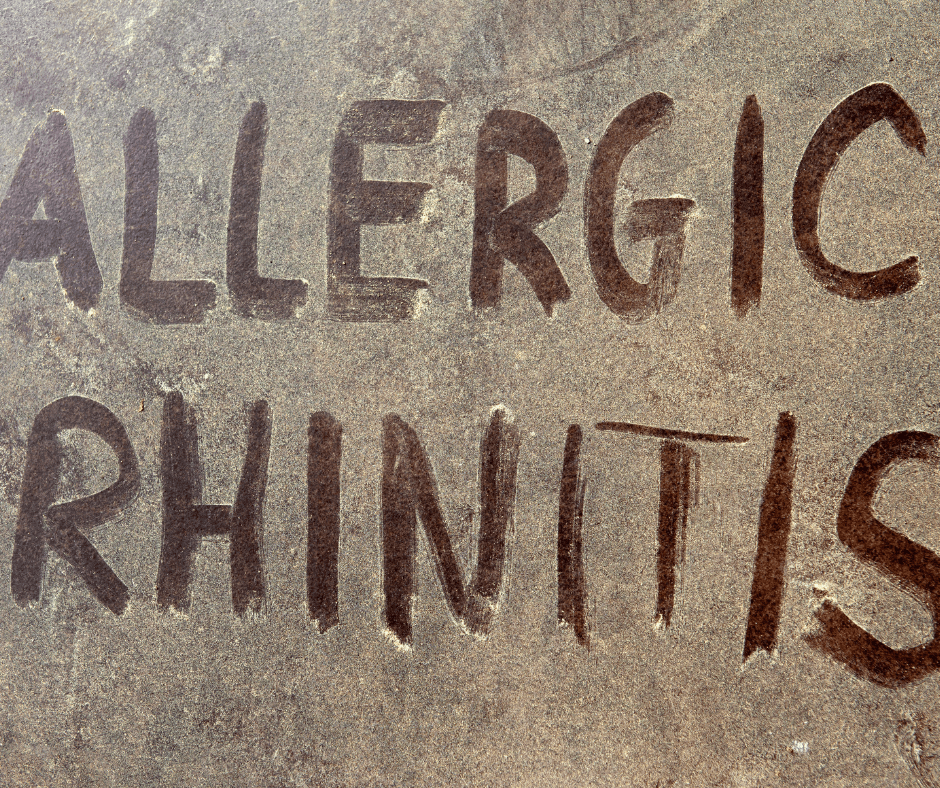We receive lots of queries from patients asking about the best natural solutions to treat their allergies. We are devoting this blog to discussing two of the most common kinds of allergies that we frequently see in our clinic in Arizona and provide some of the herbs and natural remedies that can assist.
Keep in mind that we do not offer medical advice through this blog. We cannot manage your particular allergy or condition without consulting you or taking one of our extensive allergy tests. We suggest that you consult your physician.
Pages of Contents
What exactly is allergenic Rhinitis
Allergic Rhinitis is an inflammatory disorder that affects respiratory tract, the sinuses the throat, and ears. Also called pollinosis or the hayfever, this develops when an individual who is allergic inhale an allergen that they are allergic to.
There are two kinds of allergic rhinitis. People suffering from seasonal allergies are prone to symptoms in the fall, spring or both seasons as they are exposed to airborne pollen as well as indoor mold spores. The condition, known as perennial allergic rhinitis that can be found all year long it is caused by allergens in the indoor environment like house dust dust mites, pet dander and indoor mold.
Symptoms:
The signs of this allergy are sneezing, itching and runny nose postnasal drip and congestion of the ears, nose and sinuses. It is also possible to experience an overall feeling of fatigue and of feeling “unwell” when you experience an attack of allergies. These symptoms can vary in intensity between individuals.

Herbal Solution Alternatives For Allergies
Herbal remedies may provide an alternative method to treat allergic rhinitis. When used in a responsible manner herbal remedies will not only lessen the symptoms of allergic rhinitis but can also eliminate them completely. They also help strengthen the organs and tissues of your body and improve overall well-being. Here are a few herbs most effective to treat allergies as well as other respiratory problems.
Stinging Nettle (Urtica dioica)
This plant is well-known among people who have the misfortune of having to touch its leaves. Stinging nettle can be painful for many aspiring gardeners but it’s an effective herb remedies to treat allergic rhinitis. It is an antioxidant and astringent, as well as an antimicrobial and analgesic it can alleviate inflammation associated with allergies without any of the negative side effects that are a result of the use of medications. The fresh nettle crop is available in the spring. The leaves are cooked to eliminate their stinging properties and you can also include them in soups, salads, or stews, just like other leafy green vegetables. It can also be used in dried form to make tea with nettle.
Perilla (Perilla frutescens)
The herb that is largely unknown is part of the mint family and can assist you in fighting the symptoms of allergic rhinitis. Numerous studies have proven perilla to be beneficial in treating nasal congestion, sinusitis allergy asthma and eye irritation (another problem for those suffering from allergies). It also helps with allergic skin problems. It is important to note that essential oil that are found in perilla can have an antidepressant action and increase serotonin production in brain. This incredible herb does not just reduce inflammation in your body, but enhances your mood and improves the feeling of wellbeing.
Sea Buckthorn (Hippophae rhamnoides)
The plant develops into a small or shrub-like tree easily identifiable by its thorny grey twigs , and bright orange ovoid fruits. Sea buckthorn has greater than 190 minerals as well as phytonutrients. The nutrient-rich berry has an assortment in organic acids, tannins quercetin and provitamin A. It also contains vitamin E as well as a large amount of vitamin C and vitamin B-complex vitamins. Additionally, it has large quantities of superoxide dismutase (SOD) which is one of the key enzymes that play an essential role in maintaining the health of your respiratory system. Sea buckthorn is a great choice for people suffering from allergic rhinitis in addition to chronic coughs, asthma and various breathing problems. Its unique nutrient content enhances the health of the mouth, eyes as well as mucous membranes. There are many sea buckthorn products available on the market right now. You must be careful when choosing However, you should make sure you buy from a reputable firm that has high standards for the highest quality.
Butterbur ( Petasites hybridus)
The butterbur plant is found within the marshlands of North America, Europe, and Asia. It has been used for centuries to treat headaches, pains as well as fevers and digestive disorders. Recently it’s also employed to treat migraines, urinary tract infection such as migraines, as well in the treatment of allergies like hay fever. Butterbur is also the subject of research which has yielded promising findings. A study has found that this herb performs similar to Zyrtex which is a prescription allergy medication. Butterbur products contain extracts of the rhizome or root or leaves. It is not recommended to utilize the herb in its uncooked form because it is a source of alkaloids (PAs) which are harmful to human beings. Make sure to choose products that are labeled as PA-free.
Ginger ( Zingiber officinale)
Ginger is a healthy and potent herb that is safe and highly effective. In addition to its culinary benefits It is also beneficial to overall health since it helps soothe the digestive system and increases circulation. Ginger is an natural antihistamine, potent antiviral agent, as well as an the immune system is boosted. Drink a cup of ginger tea for relief from headaches and nasal congestion. While sipping your tea, breathe in the steam rising from your cup. There are many stores selling ginger both dried and fresh. You can also mix it with other herbs like the spice turmeric which can be a potent natural healer.
Yarrow ( Achillea millefolium)
The herb Yarrow is indigenous in the British Isles, but also widely used across Europe as well as Asia. The herb is multi-purpose and is antiseptic, stomachic, anaesthetic, antispasmodic, and diaphoretic qualities. It is traditionally used to treat colds, flu and fevers. Yarrow could also be an effective treatment for allergic sinusitis. Its antibacterial and anti-catarrhal effects make it a great herb to treat respiratory issues as well as this natural remedy is also effective in treating sinusitis and allergies. You can consume yarrow either in tea form, or as an tincture. This herb is potent and daily consumption is not recommended over the two weeks. Additionally, it is recommended to stay clear of this herb if have an allergy to ragweed since both plants are closely related.
Natural Plants are a potent source of medicine:
Herbal remedies can help you get some relief for symptoms associated with allergic rhinitis along with other respiratory ailments. If they are used in a responsible and proactive manner they can increase your immunity and delay the onset of an allergic reaction. Before attempting any new therapy it is crucial to consult with a doctor.
Although they might have less negative effects than standard medication, herbs are medicine as well (albeit naturally) and it is important to consider them as such. Be aware of the appropriate dosage and contraindications. Please consult your allergist or physician before you take.
If you’re looking for help with the specific allergy you suffer from we invite you to contact us via phone at 480-767-798 to make an appointment in person to test for allergies and consult to one of our top allergy and sinus doctors within the North Scottsdale Sinus and Allergy clinic.



